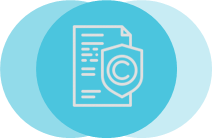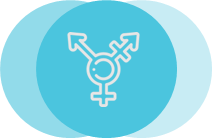- 1. Enable Open Science, including through the European Open Science Cloud (EOSC)
-
 Action 1 of the ERA Policy Agenda aims to facilitate a system of open sharing, seamless access, and reliable re-use of research data. Scientific discovery and research impact are highly dependent on an open sharing of scientific data and research outputs. However, there are obstacles to Open Science practices and digital research, as a significant part of scientific data: 1) is not shared openly, (2) never makes it to a trusted and sustainable repository, and (3) is poorly annotated or not formatted in a standardised way allowing for machine-readability.
Action 1 of the ERA Policy Agenda aims to facilitate a system of open sharing, seamless access, and reliable re-use of research data. Scientific discovery and research impact are highly dependent on an open sharing of scientific data and research outputs. However, there are obstacles to Open Science practices and digital research, as a significant part of scientific data: 1) is not shared openly, (2) never makes it to a trusted and sustainable repository, and (3) is poorly annotated or not formatted in a standardised way allowing for machine-readability.In view of enhancing Open Science (OS) in Europe, the ambition of the EOSC action is to provide an environment that allows researchers, innovators, companies and citizens to publish, find and re-use each other’s data and tools (i.e., methods, protocols, software, and publications) for research, innovation and educational purposes. In line with this ambition, the ERA Policy Agenda 2022-2024 envisions three main outcomes:
- Deploying OS principles and identifying OS best practices;
- Deploying the core components and services of EOSC and integrating existing data infrastructures in Europe, working towards the interoperability of research data;
- Establishing a monitoring mechanism to collect data and benchmark investments, policies, digital research outputs, OS skills, and infrastructure capacities related to the EOSC.
- 2. Propose an EU copyright and data legislative framework for research
-
 This action aims to propose an EU copyright and data legislative and regulatory framework fit for research.
This action aims to propose an EU copyright and data legislative and regulatory framework fit for research.It should enable, among other:
- Access to (including open access) and reuse of publicly funded R&I results;
- Access to (including open access) and reuse of publications and data for research purposes;
- Data services and infrastructures managed for the benefit of research stakeholders; and
- Flow of research knowledge and data across the EU.
Barriers and challenges to achieve these objectives, however, currently exist. To address this situation, the expected outcomes of the ERA Action 2 are twofold:
(i) identify barriers and challenges to access and reuse of publicly funded R&I results and of publications and data for scientific purposes, and identify potential impacts on research, through an analysis of relevant provisions under EU copyright and data legislation and related regulatory frameworks, and of relevant institutional and national initiatives;
(ii) propose legislative and non-legislative measures to improve the current EU copyright and data legislative and regulatory frameworks.
- 3. Reform the Assessment System for research, researchers and institutions
-
 ERA Action 3 of the ERA Policy Agenda aims to advance towards a reform of the research assessment system, with the goal of assessing the quality, performance, and impact of research and researchers using more suitable criteria and procedures.
ERA Action 3 of the ERA Policy Agenda aims to advance towards a reform of the research assessment system, with the goal of assessing the quality, performance, and impact of research and researchers using more suitable criteria and procedures.The assessment of research projects, researchers, and institutions is crucial for ensuring a well-functioning R&I system and to improve the quality, performance and impact of research. While some research funding and performing organisations have begun to enhance their assessment tools, the current system still often relies on inadequate and narrow methods, and the advancement in improving research and researcher assessment across Europe has been slow, limited, and fragmented.
In view of the objective to advance towards the reform of the assessment system for research, researchers and institutions to improve their quality, performance and impact, Action 3 aims to reward open science practices in terms of open collaboration, knowledge and data sharing to increase quality, efficiency and trust, establish coalitions between relevant stakeholders and identify potential administrative and legal barriers to institutional changes. The three expected outcomes outlined in the ERA Policy Agenda 2022-2024 are:
- Analysis of legal and administrative barriers at national and trans-national level for a modern research assessment system;
- Create a Coalition of European research funders and research performers who agree on a new approach for research assessment, following wide and inclusive consultations at European and international level;
- Implementation plan of the coalition to roll-out the new approach, including pilots in different domains.
- 4. Promote attractive research careers, talent circulation and mobility
-
 This action aims at strengthening research careers in Europe and at making them more attractive for EU and international research talents. It seeks to provide researchers with enhanced working conditions and with the necessary instruments to undertake excellent research. The action also tackles the challenges posed by current skills mismatches, which can negatively affect inter-sectoral and inter-disciplinary mobility as well as the whole cycle of knowledge production, circulation and valorisation.
This action aims at strengthening research careers in Europe and at making them more attractive for EU and international research talents. It seeks to provide researchers with enhanced working conditions and with the necessary instruments to undertake excellent research. The action also tackles the challenges posed by current skills mismatches, which can negatively affect inter-sectoral and inter-disciplinary mobility as well as the whole cycle of knowledge production, circulation and valorisation.On the basis of the expected outcomes defined by the Council, the Commission has identified 3 strands of activities to be implemented in the context of the action:
- The development of a European framework for research careers, to address in a comprehensive way all challenges related to research careers in Europe;
- The exchange of best practices and mutual learning to foster inter-sectoral mobility, more balanced talent circulation, and researchers’ skills;
- Developing or improving tools in support of research careers. This includes existing instruments such as EURAXESS, RESAVER, or the Human Resources Strategy for Researchers (HRS4R, the implementation mechanism for the Charter and Code for Researchers), as well as the development of new ones, such as a European Competence Framework for Researchers (ResearchComp), the ERA Talent Platform as a one-stop-shop for researchers, and a Research and Innovation Careers Observatory.
- 5. Promote gender equality and foster inclusiveness
-
 This action aims at promoting inclusive gender equality in the ERA, while continuing to progress towards the three objectives that have underpinned the gender equality priority in the ERA since the 2012 Communication, i.e., promoting gender equality in careers at all levels, enhancing gender balance in decision-making, and integrating the gender dimension into research content.
This action aims at promoting inclusive gender equality in the ERA, while continuing to progress towards the three objectives that have underpinned the gender equality priority in the ERA since the 2012 Communication, i.e., promoting gender equality in careers at all levels, enhancing gender balance in decision-making, and integrating the gender dimension into research content.The new inclusiveness dimension of gender equality policies in the ERA Policy Agenda 2022-2024 aims to better tackle intersections between gender and other social categorisations and personal identities (i.e. address intersectionality), as well as to take into account inclusiveness at the geographical and sectorial levels to ensure that all countries are on board, and that the innovation actors and the private sector are also involved, considering in particular the significant under-representation of women in the STEM-oriented innovative entrepreneurship domain.
The accomplishment of these objectives is interrelated in particular with the implementation of Gender Equality Plans (GEPs) in Horizon Europe as key drivers of institutional change. Having a GEP has been set as an eligibility criterion for all public bodies, higher education institutions and research organisations from EU Member States and Associated Countries aiming to participate in the Horizon Europe calls with deadlines in 2022 and onward. This shift has been supported by a growing number of Member States that have a GEP requirement in place at national level.
The Ljubljana Declaration on Gender Equality in Research and Innovation, a core commitment to mainstream gender equality spearheaded by the Slovenian Presidency and endorsed by 25 Member States and the European Commission, also evidenced the role of GEPs as key policy instruments to achieve long-term and sustainable institutional change in the new ERA.
The approach to gender equality in R&I, as established in the Communication of 30 September 2020 on ‘A new ERA for Research and Innovation’ emphasises inclusive GEPs as a key priority in the new ERA and acknowledges that ‘other characteristics such as racial and ethnic origin, disability, socioeconomic background or sexual orientation interact and can reinforce intersectional and specific forms of discrimination that may limit the impact of measures focused only on one characteristic’. In addition, the Ljubljana Declaration identifies the need to address gender-based violence (GBV) in R&I, and to strengthen monitoring and evaluation of gender equality, including developing appropriate indicators to measure progress.
These EU-level initiatives aim to address some of the persistent inequalities and challenges in relation to gender equality across the R&I ecosystem in Europe, which are evidenced by key EU publications such as the She Figures .
Consequently, Action 5 envisages the following four outcomes:
- Develop a policy coordination mechanism to support all aspects of gender equality through inclusive Gender Equality Plans and policies, and a dedicated EU network on their implementation;
- A strategy to counteract gender-based violence, including sexual harassment, in the European R&I system and ensure gender equal and inclusive working environments through institutional change in research funding and performing organisations;
- A policy approach to inclusive gender equality, that addresses gender mainstreaming and opening to intersectionality with other diversity dimensions to advance the new ERA;
-
Develop principles for the integration and evaluation of the gender dimension in R&I content in cooperation with national RFOs.
- 6. Protect academic freedom in Europe
-
 Freedom of scientific research and academic freedom is safeguarded by Article 13 of the Chapter of Fundamental Rights of the EU (2000/C 364/01). Both are fundamental pillars of the EU's commitment to safeguarding knowledge and promoting intellectual autonomy. However, the autonomy of scientific research and academic institutions often faces threats in cases where foreign actors exert control over international academic and research collaborations.
Freedom of scientific research and academic freedom is safeguarded by Article 13 of the Chapter of Fundamental Rights of the EU (2000/C 364/01). Both are fundamental pillars of the EU's commitment to safeguarding knowledge and promoting intellectual autonomy. However, the autonomy of scientific research and academic institutions often faces threats in cases where foreign actors exert control over international academic and research collaborations.Repression can extend beyond borders, endangering HEI’s, research performing organisations, and individual scholars who may be compelled to engage in self-censorship. In response, this action seeks to protect freedom of scientific research and promote the development of tools to address foreign interference in research and innovation (R&I) and facilitate collaboration among Member States on this topic (see Commission Staff Working document).
ERA Action 6 consists of two main elements :
- Fostering the formulation of a comprehensive policy framework aimed at preserving and promoting academic freedom throughout Europe.
- Providing substantial backing to HEIs, RPOs and RTOs in their efforts to identify and address issues related to foreign interference in Research and Innovation (R&I) activities.
Statements have been published to define academic freedom. Annex I of the European Higher Education Area (EHEA) Rome 2020 ministerial Communique defines it as the ‘freedom of academic staff and students to engage in research, teaching, learning, and communication in and with society without interference nor fear of reprisal’.
The Bonn Declaration on Freedom of Scientific Research published in 2020 mentions that freedom of scientific research is a broad concept which is related to freedom of expression, freedom of association, freedom of movement, and the right to education, among other rights. It includes the freedom to independently formulate research inquiries, select and refine theoretical frameworks, collect empirical data, and apply rigorous academic research methodologies. It also encompasses the ability to challenge established conventions and present innovative concepts.
This action aligns with ERA Priority 1, which aims to deepen a truly functioning international market for knowledge, by ensuring the protection and monitoring of academic freedom. Action 6 also contributes to the objectives of the G7 Working Group on the Security and Integrity of the Global Research Ecosystem (SIGRE).
This Action is expected to have four outcomes:
- Facilitate the development of a policy approach to safeguard the freedom of scientific research in Europe, based on the Bonn Declaration on freedom of scientific research by publishing the first European monitoring report on the freedom of scientific research.
- Organise mutual learning exercise on tackling R&I foreign interference among interested MS.
- Set up of a one-stop shop European digital platform on academic freedom and foreign interference in R&I.
- Develop Open-Source Intelligence Tool (OSINT) for research organizations and universities, offering easily accessible information on foreign institutions, individuals, technologies, affiliations, research projects and universities.
- 7. Upgrade EU guidance for a better knowledge valorisation
-
 This Action aims to address the various needs of the R&I landscapes in the context of the management of intellectual property in knowledge transfer activities. It aims to catalyse the move from the traditional concept of knowledge transfer to valorisation of knowledge assets. It also addresses the increasingly complex knowledge value-chains, new market opportunities created by emerging technologies, new forms of industry-academia collaborations and involvement of citizens, as well as reciprocity in the management of intellectual property in international R&I cooperation.
This Action aims to address the various needs of the R&I landscapes in the context of the management of intellectual property in knowledge transfer activities. It aims to catalyse the move from the traditional concept of knowledge transfer to valorisation of knowledge assets. It also addresses the increasingly complex knowledge value-chains, new market opportunities created by emerging technologies, new forms of industry-academia collaborations and involvement of citizens, as well as reciprocity in the management of intellectual property in international R&I cooperation.The goal of this action is to establish a unified approach to measures and policy instruments that enhance knowledge sharing and valorisation in Europe. This Action includes the following 3 expected outcomes:
- Develop and endorse Guiding Principles for knowledge valorisation;
- Development of a Code of Practice for smart use of IP together with stakeholders;
- Development of a Code of Practice for researchers on standardisation.
The Guiding Principles for knowledge valorisation will entail a political commitment co-designed with, and endorsed by, Member States. The intent of the Guiding Principles is to cater to the needs and feedback of knowledge valorisation actors, and to present a legal reference to encourage knowledge circulation and valorisation in Europe.
These guidelines will also help address knowledge valorisation gaps in Member States and guarantee that Widening Countries can better benefit from R&I results. Codes of Practice will offer guidance to R&I professionals on the implementation of specific aspects of knowledge valorisation, such as intelligent intellectual property management and standardization for effective knowledge uptake.
For more information, please visit the Knowledge Valorisation Platform.
- 8. Strengthen research infrastructures
-
 ERA Action 8 aims to reinforce Europe’s research and innovation system through a set of European-level initiatives in the field of research infrastructures. The goal is to strengthen sustainability in terms of funding and investments, ensuring for researchers and innovators equal opportunities to access services provided by European infrastructures and increasing the impact of the investment made in research infrastructures on economy and society.
ERA Action 8 aims to reinforce Europe’s research and innovation system through a set of European-level initiatives in the field of research infrastructures. The goal is to strengthen sustainability in terms of funding and investments, ensuring for researchers and innovators equal opportunities to access services provided by European infrastructures and increasing the impact of the investment made in research infrastructures on economy and society.European-level activities have contributed to the development of a mature research infrastructure landscape. Existing frameworks like the ESFRI Roadmap, the European Charter for Access to research infrastructures and the ERIC Legal Framework will be improved. Furthermore, through enhanced analysis and the implementation of new funding models and performance monitoring methodologies, persistent and emerging challenges will be effectively addressed.
This Action aims to achieve five outcomes, with a focus on sustaining long-term excellence and competitiveness within the ERA:
- Strategic analysis of the European Research Infrastructure landscape;
- Broader and more sustainable access for all countries to European research infrastructures and their services and revision of the European Charter of Access to Research Infrastructures;
- Update of the ESFRI Roadmap and implementation of the research infrastructures performance monitoring framework;
- Report on the ERIC Framework;
- Increased cooperation between research infrastructures, e-infrastructures and stakeholders, including through EOSC.
Action 8 addresses European research infrastructures and their interface with technology infrastructures, which is also relevant to Action 12, where technology infrastructures linked to Industrial policy will be addressed.
- 9. Promote international cooperation
-
 ERA Action 9 has a strategic focus on promoting a positive environment and level playing field for international cooperation based on reciprocity. This approach considers shared values and principles, respecting high ethical standards, academic freedom, and human rights in international R&I cooperation, promoting rules-based multilateralism, pursuing reciprocal openness and modulating its bilateral relations in R&I in line with European interests and values to maintain the EU’s strategic autonomy.
ERA Action 9 has a strategic focus on promoting a positive environment and level playing field for international cooperation based on reciprocity. This approach considers shared values and principles, respecting high ethical standards, academic freedom, and human rights in international R&I cooperation, promoting rules-based multilateralism, pursuing reciprocal openness and modulating its bilateral relations in R&I in line with European interests and values to maintain the EU’s strategic autonomy.There are four specific outcomes that this ERA Action aims to achieve:
- Further develop values and principles for international cooperation in R&I as set out in the Council Conclusions on the Global approach to Research and Innovation - Europe’s strategy for international cooperation in a changing world to be promoted in multilateral dialogues with partner countries and international fora;
- Launch one pilot initiative on the Team Europe approach for a specific world region and/or topic;
- Develop a European Science Diplomacy Agenda;
- Promote a coordinated joint approach for engagement in multilateral initiatives.
Action 9 is particularly related to Action 6: Deepening the ERA Through Protecting Academic Freedom. Both actions relate to the EU’s strategic autonomy in protecting its researchers and innovation stakeholders. The EU intends to lead by example, in respecting high ethical standards, academic freedom and human rights when cooperating with countries and regions outside Europe.
